The 6 Cs of the 2018 Nobel Prize in Medicine and Physiology professor
Associate Professor Tran Huy Thinh recounted that in Professor Honjo's lab, everyone knew the 6 "C"s: "curiousity"; "courage"; "continuation"; "confidence"; "concentration"; "challenge".
Respected teacher
Associate Professor Tran Huy Thinh and Dr. Le Thi Huong are two of the four Vietnamese students of Professor Tasuku Honjo - who was just awarded the 2018 Nobel Prize in Physiology or Medicine. For them, this result is not too surprising because many years ago, he was considered a strong candidate for the Nobel Prize.
Having had the opportunity to work in Mr. Honjo's lab for more than 6 years, Dr. Le Thi Huong was forever impressed by a caring teacher who, although quiet, always cared about his students.
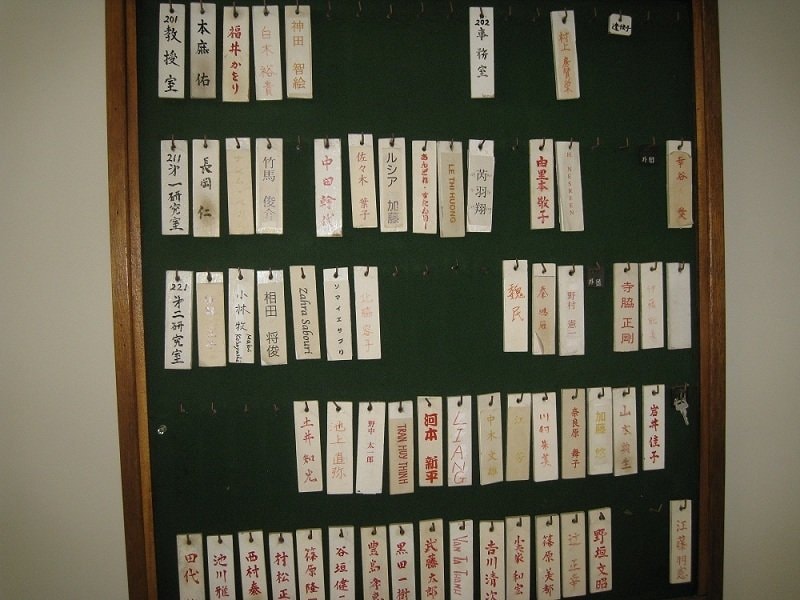 |
| “In Mr. Honjo’s lab, there is always a student name tag. This name tag has two sides: the red side means the student has not yet arrived, the black side means they have arrived. Every time I come, I see the teacher’s card on the black side. He doesn’t need to say much, nor does he remind us about arriving late or early. But just looking at the name tag makes us very scared and self-conscious,” said Dr. Le Thi Huong. |
In his lab, every Monday morning everyone has to report on the problem they are working on. There will also be a session in the middle of the week for each person to present the problem they are researching. On Saturday, other labs can be off, but Honjo's lab continues to work.
Students here will present topics related to the content they are researching or find interesting or update specialized knowledge content for everyone to discuss.
“Because we have to deliver a new result every week, we are always racing against time. You feel like it is a never-ending cycle, today is successful, tomorrow we continue to find a new direction.”
“However, even though there might not be any results, Mr. Honjo never scolds his students.”
 |
| Dr. Le Thi Huong. |
She herself has many times fallen into a deadlock to the point of tears because she could not find a way out.
“What I fear most is the feeling of raising mice for a whole year, I can genetically modify a mouse into the phenotype I want, but when I put it into the experiment, I see no signs of it. At that time, I told my teacher:“I'm sorry to give you an undesirable result. I feel helpless and want to stop.”And so I burst into tears.
But he was very calm. He said to me:“I don’t think so. You’ve succeeded in proving that this protein doesn’t work on mice. Anything is possible. You’re free to continue testing with other proteins. They’re still waiting for you.”
The teacher was patient and waited for his students like that. For him, whether he succeeded or not, it was not a failure.
Mr. Honjo is so careful that whenever he is researching something new, he will present it so that the whole lab can listen and give comments.
He also always wants his students to have the best learning conditions. He is willing to support students when they need a protein or antibody even though it can cost up to $25,000. He teaches his students about the responsibility of the predecessors in guiding the next generation according to culture.Senpai - Kohaiof the Japanese. There, teachers do not have to spend too much time teaching but mainly show methods and directions to students.
The 6 “C”s of Mr. Honjo
“I often tell my friends that if someone can survive in Japan, they can survive anywhere in the world. And if they can survive in Mr. Honjo’s laboratory, they can survive in any research lab across Japan” - Associate Professor Tran Huy Thinh (Center for Gene - Protein Research, Hanoi Medical University) proudly talks about his teacher.
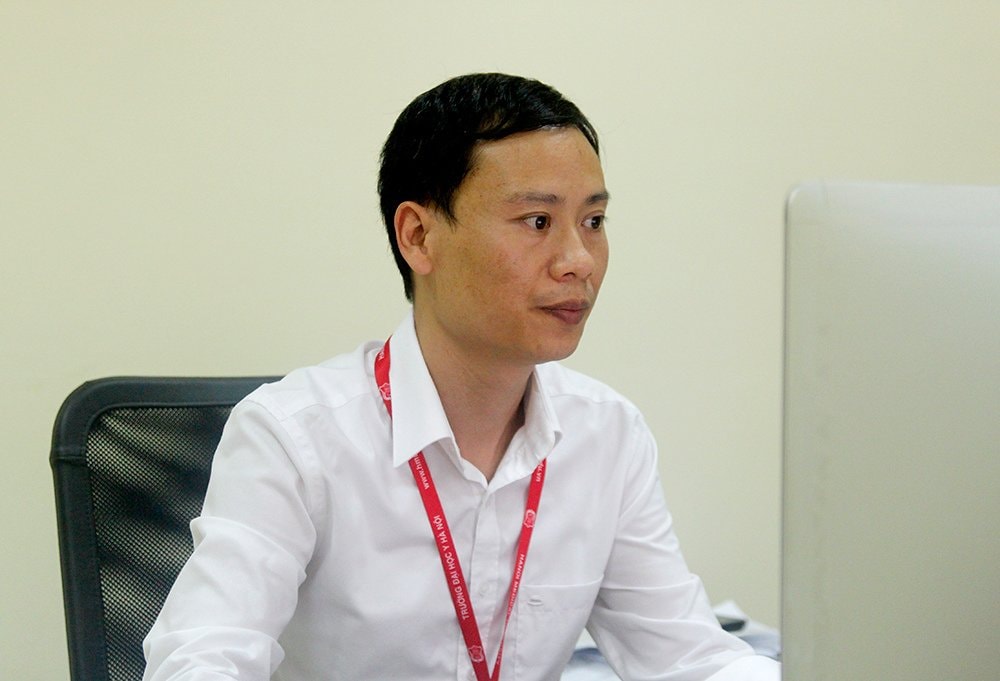 |
| Associate Professor Tran Huy Thinh is currently working at the Center for Gene - Protein Research, Hanoi Medical University. |
Associate Professor Tran Huy Thinh recounted that in Professor Honjo's lab, everyone knew the 6 "C"s: "curiousity"; "courage"; "continuation"; "confidence"; "concentration"; "challenge".
“The 6 “Cs” of Mr. Honjo mean that, although in general research is 90% failure, although researchers may take years to produce results, they must always look at the problem frankly, dare to face failure as a part of life. Failure is allowed, but failure is not allowed to happen repeatedly in the same problem.
So, even though there were times when I felt really stuck, I chose to cycle out to the river bank and sit there for hours wondering why instead of giving up. Even though most of the questions may not have answers, each time I felt relieved. Then I went back to continue to work on finding a new direction.
Associate Professor Tran Huy Thinh admires his teacher most for his way of thinking and problem solving. “A problem, whether presented in English or Japanese, is always very convincing. We always admire him when we see him writing books. He never needs to type on a computer or write on paper, but only needs to record it and let his secretary listen and type it into text. The knowledge is already in his head and is very well organized.”
At the age of 37, Professor Honjo was already a professor at the third largest university in Japan. At the age of 41, he was invited to become a professor at Kyoto University, the second largest university in Japan. Now, Professor Honjo is 76 years old. 35 years of maintaining the pinnacle of science is not an easy thing.
Although he is a professor, outside the laboratory, he always cares about his students from the smallest things.
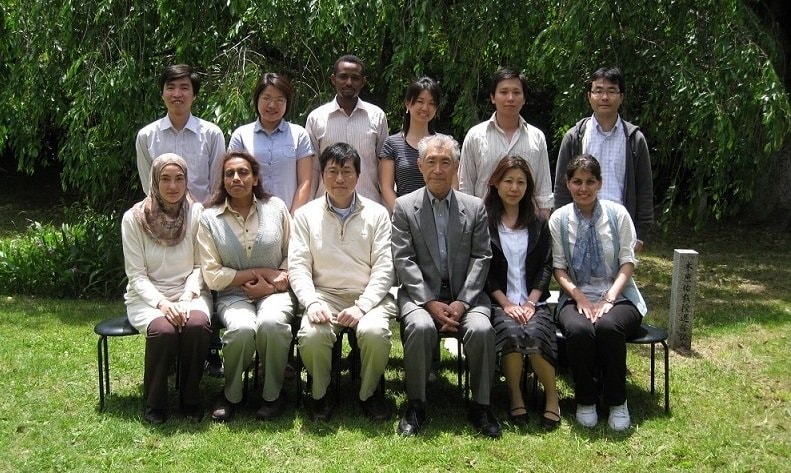 |
| Every year, Professor Honjo takes a commemorative photo with the students. |
“I remember the first days I set foot in Japan, after returning from the lab, my teacher sent me all the necessary items from towels, toothpaste, toothbrush, razor, slippers, chopsticks, bowls, etc.
I still remember the lessons he taught us. I remember he often said: “Don’t try to be number 1, try to be the only one.”
Because, in the field of science, there are always hot topics that everyone wants to explore, contribute to and become number 1. But from another perspective, the teacher advised us that each person should find their own path that is different from everyone else and that path must be the most suitable for their conditions and abilities.

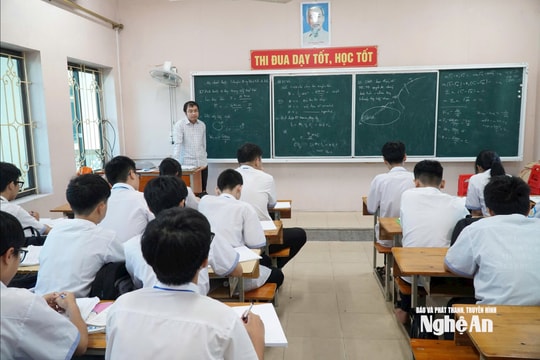
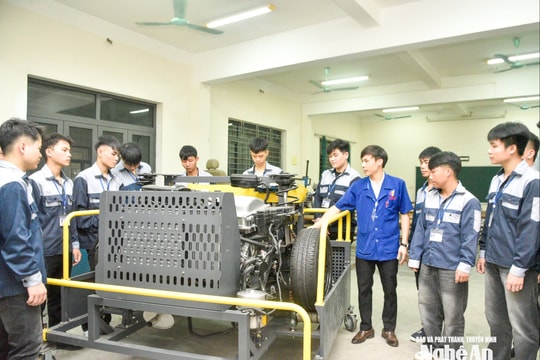
.jpg)
.jpg)

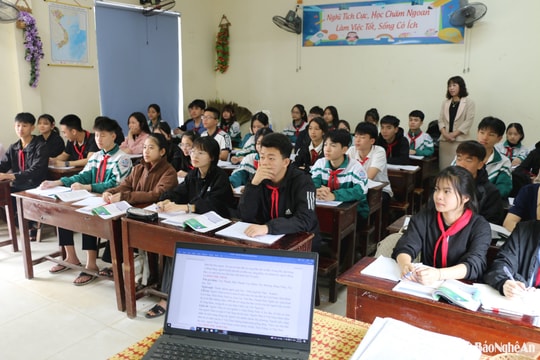
.jpg)
